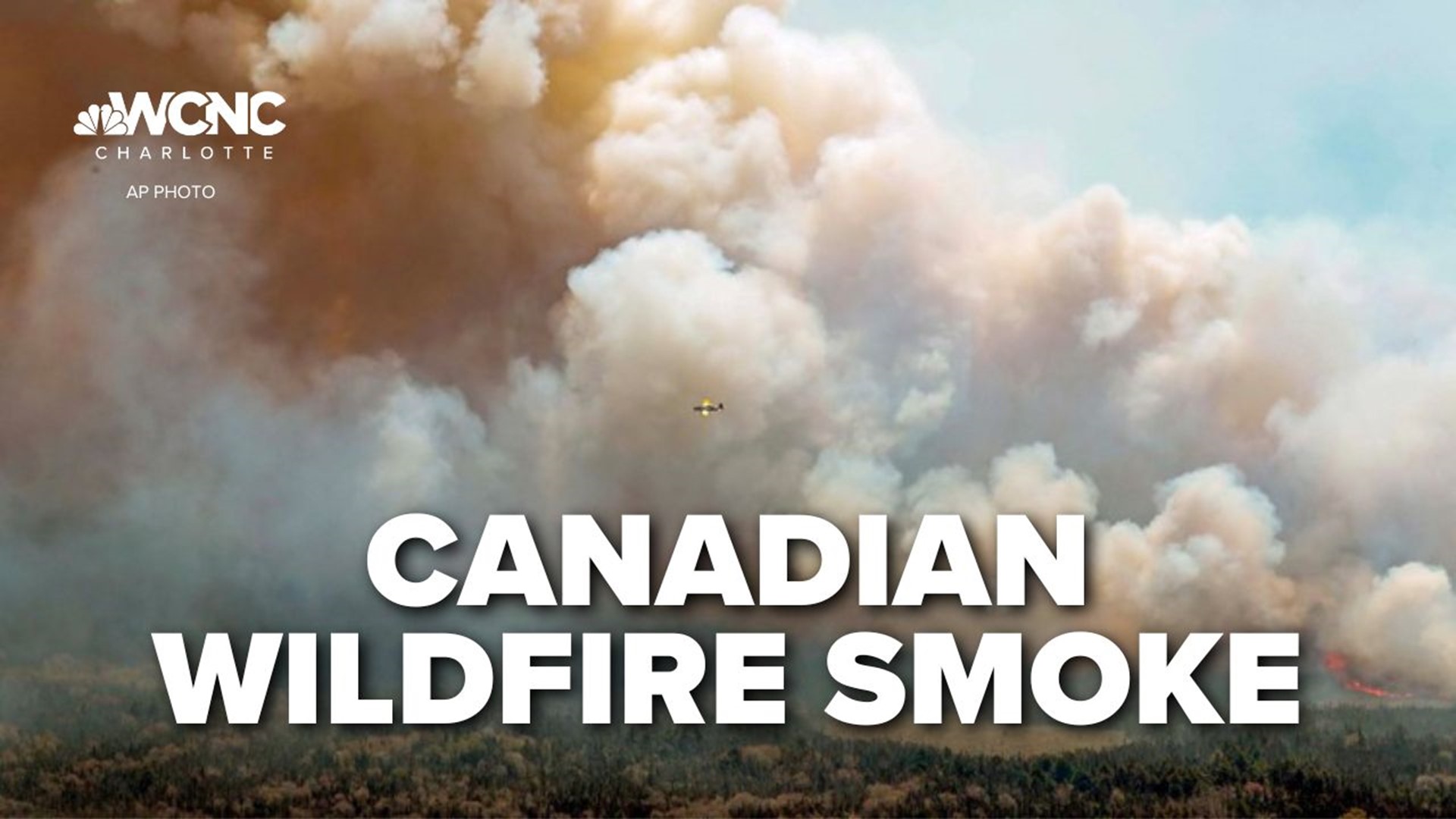CHARLOTTE, N.C. — The combination of wildfire, smoke from fires in Nova Scotia and New Jersey, along with northeast flow winds, will push some smoke into the Carolinas Friday, according to WCNC Charlotte Chief Meteorologist Brad Panovich. The smoke is expected to cause hazy skies across the region.
"It's really been heartbreaking news. Definitely a lot of helplessness," Tim Houston, the premier of Nova Scotia, Canada, said about the fire continuing to burn.
The Canadian fire, along with another fire burning in New Jersey, has also ready caused dangerous air quality in the Northeast this week. As the winds continue to carry the smoke south, those air quality concerns will come with it.
Satellite imagery and weather-computer projections show the smoke drifting south Friday.
"The large trough over the East Coast is pushing that smoke," Panovich said. The trough is caused by high pressure over the Northeast, which spins in a clockwise motion and is pushing the wind south.
The smoke near the surface has prompted the issuance of air quality alerts in New Jersey and Pennsylvania already. Those extended into the Carolinas by later Friday afternoon.
"We don't have any evidence that there's a safe level of air pollution," Colleen Reid, an assistant professor of geography at the University Of Colorado Boulder, told NBC News. "Every level we find adverse health effects associated with that."
Those sensitive to poor air quality are warned to be particularly attentive.
"Anyone who has asthma, emphysema, other chronic lung disease, people who have pre-existing heart disease, people who are pregnant, or that there's also concern particularly about the elderly or young children," Reid said explaining those populations who practice caution.
Part of the spread of these fires is due to climate change, which is playing a definitive role in air quality as it makes wildfires more intense and stronger.
"I think we will see more as the summer progresses as the west further dries out," David Robinson, a professor of geography at Rutgers University, told NBC News. " We deal with weather patterns that are limiting the amount of precipitation."
NBC News contributed to this report
Contact Brad Panovich at bpanovich@wcnc.com or follow him on Facebook, Twitter and Instagram.

